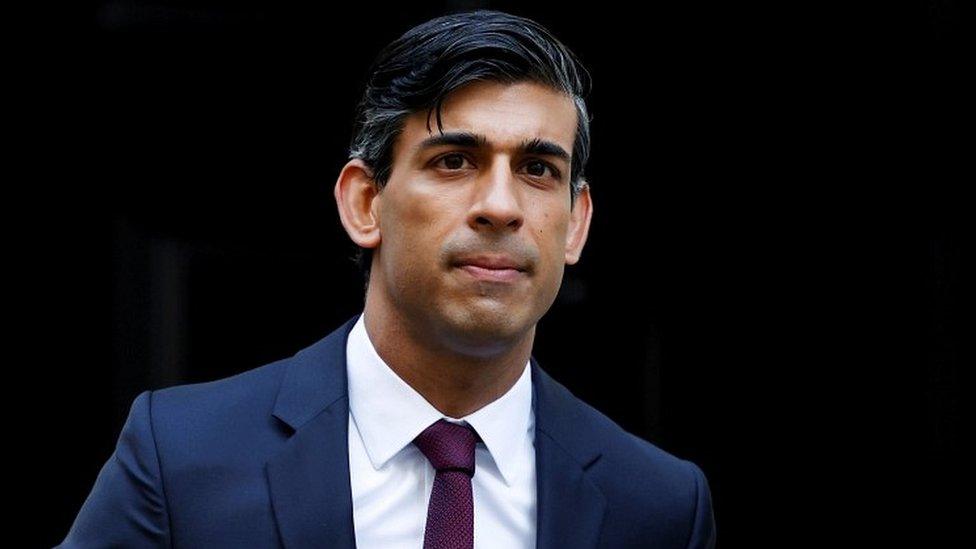Spending review dropped amid Covid uncertainty
- Published

Rishi Sunak said the immediate focus was on saving jobs
The government has abandoned its long-term Comprehensive Spending Review amid economic uncertainty caused by the Covid-19 pandemic.
Chancellor Rishi Sunak will instead set out a one-year review in late November.
The Treasury said it was "the right thing" at the moment to "focus entirely" on protecting jobs and responding to the crisis.
Economists had warned that the pandemic meant setting longer-term spending targets would prove difficult.
It has also been announced that Mr Sunak will update the House of Commons on the state of the UK economy on Thursday at 11:30 BST.
The latest Office for National Statistics figures show the economy was before lockdown began.
And the government's net - the third-highest figure since records began in 1993.
The Treasury had promised to use the spending review to help in "levelling up" opportunity across the country - a key Conservative manifesto promise.
Pledges included improving education and the NHS, funding scientific research and achieving the ambition of making the UK "zero-carbon" by 2050.
Announcing the spending review's cancellation, Mr Sunak said: "In the current environment it's essential that we provide certainty.
"So we'll be doing that for departments and all of the nations of the United Kingdom by setting budgets for next year, with a total focus on tackling Covid and delivering our Plan for Jobs.
"Long-term investment in our country's future is the right thing to do, especially in areas which are the cornerstone of our society, like the NHS, schools and infrastructure."
'Disappointing'
Last month, Mr Sunak scrapped plans for an autumn Budget in favour of the review, which would have set out how much each government department can spend but would not have included any changes to taxation.
The review had been due to set departments' resource budgets for 2021-2 to 2023-4 and their capital budgets for 2021-2 to 2024-5.
The devolved administrations' block grants were also due to be set for 2021-2 to 2024-5.
Sharon Taylor, of the District Councils Network, which represents 187 local authorities across England, said it was "disappointing to see a one-year rather than three-year settlement".
She urged the government to give local authorities "long-term financial certainty" as they deal with the effects of Covid-19.
But Gemma Tetlow, chief economist at the Institute for Government think tank, said it was "good to see the government finally facing up to what has been clear for months, [that it is] not possible to do a multi-year spending review now in midst of the pandemic".
However, the government is to publish its separate Integrated Review of Foreign, Development, Security and Defence Policy next month, as planned.
But ҙуПуҙ«ГҪ political correspondent James Landale said it was not likely to reveal "tough decisions" on three-year spending commitments in these policy areas, instead dealing more broadly with "ambition and strategy".